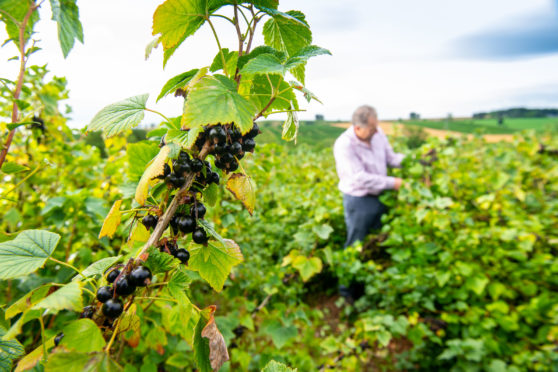The makers of fruit drink Ribena have invested more than half-a-million pounds in a five-year project with the James Hutton Institute (JHI) to develop new varieties of blackcurrant.
Funded by Lucozade Ribena Suntory (LRS), the programme will develop new, climate-resilient blackcurrant varieties after previous research from the institute highlighted the threat climate change poses to blackcurrant farming.
The move continues the long-standing relationship which began in 1991 between LRS and the JHI.
Since then, the global brand has invested more than £10 million to improve the sustainability and quality of British blackcurrant crops.
LRS uses 90% of the blackcurrants grown in Britain to make Ribena and around 10,000 tonnes are harvested from British fields each year to meet demand for the soft drink.
The plants need a period of sustained cold weather in the winter, without which they yield less fruit and have a shorter lifespan.
The UK’s 10 hottest years on record have all occurred since 2002 and winters in the UK are getting gradually warmer.
This is one of the challenges LRS and the JHI, which has sites in Dundee and Aberdeen, will continue to address over the next five years, aiming to develop varieties of blackcurrants that can cope with these changes.
Dr Dorota Jarret, a soft fruit breeder at the institute’s commercial subsidiary, James Hutton Limited, welcomed the investment and said: “Continuous investment from LRS is a forward-thinking move towards securing the future of the crop and we are delighted to play a part. Development of climate-resilient varieties is high on the James Hutton Institute’s agenda and blackcurrants are an important species in understanding the effect of climate change.”
